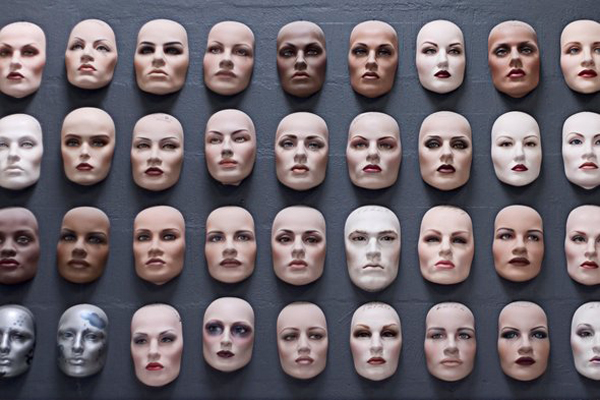
Filial piety. This concept is more than a Judeo-Christian commandment for children to honor their parents. It is also a central tenet of Confucianism, to respect and honor one’s elders. This value runs deep in many Asian cultures so that elders are respected, even venerated, for the wisdom they have accumulated through long life experience. Such respect is embedded in language and embodied in physical gestures. One’s behavior must shift to convey respect for a person’s age-related status: The choice of linguistic honorifics to convey the proper level of respect. The depth of a bow. A gesture. A bowed head. Honor and respect are due to the elderly. This is a non-negotiable given. So, video images of Asian elders being violently pushed to the ground or attacked with a knife, are disturbing and distressing on many different levels. For all Americans, such attacks raise questions about how we internalize social messages that stereotype, distort, and dehumanize others.
Racism. Racism targets individuals based on their perceived group membership – not on their personal characteristics – and constructs a race-based hierarchy in which groups are differentially valued. What does this mean? It is the lie that tells us that it doesn’t matter who we are, but about how people perceive us and judge our worth based on how we fit – or don’t fit – particular social categories. The ideology of white supremacy is not so much about white people being racist, as it is about naming this insidious hierarchy of value that always places white people at the top. When people act in ways that reinforce this false structure, they perpetuate racism. Racism also involves dehumanization. Denying the full humanity of another by seeing the category, not the person. This dehumanization can be expressed through a bureaucracy that obstructs or the choice not to lift a knee. The decision to shoot. To push. To scream obscenities in a stranger’s face. To attack the elderly. These are not equivalent actions, by any means. Yet, the denial of a person’s full humanity based on perceptions of their group membership – whether race/ethnicity, gender identity, immigration status, sexual orientation, disability, or other social categories – enables varied acts of cruelty, violence, and inhumanity. Consequently, each day, we must keep choosing actions that lift up our own humanity and the humanity of others. As one young Black activist in Oakland stated in response to anti-Asian violence, “You don’t fight racism with racism. You fight racism with solidarity.”
Anti-Asian Racism. Hate crimes against Asian America have dramatically risen since the coronavirus pandemic began (see an OIA column from April 2020, a LMU Loyolan article from last week, and Trevor Noah on Anti-Asian Racism), fueled by xenophobic, racist comments from the former president and perpetuated ever since. The new administration has issued a memorandum “condemning and combating racism, xenophobia, and intolerance against Asian Americans and Pacific Islanders in the United States.” While it helps to have this clear, unequivocal message from the top, the call to action and to solidarity is one for all of us to embrace. Below we lift up some resources, actions, and opportunities for the LMU community to consider.
Be inspired and get engaged in acts of solidarity. See some selected highlights below:
- Compassion in Oakland (volunteers offering chaperone support to API elders walking in Oakland;
- AYPAL (API youth development and community organizing), and
- Asian Pacific Environmental Network (fighting for environmental sustainability and social justice in API communities)
Learn about, become aware, and report incidents of anti-Asian American profiling, hate crimes, and racism.
At LMU, here are some things you can do:
- Listen to Dr. Curtiss Takada Rooks and his daughter, Mariko Fujimoto Rooks, at the LA Day of Remembrance 2021 (Feb. 19), as well as an interview with both of them.
- Report campus bias incidents that happen to you or that you witness happen to others.
- Seek and receive support as a form of self-care (Student Psychological Services) and safety (Public Safety)
- Join the Asian American Pacific Islander Faculty Staff Association (AAPIFSA) for a check in this Friday, Feb. 26 from 1-2 p.m. to share in a safe space and discuss upcoming initiatives to address COVID-related anti-Asian violence. Please email aapifsa@lmu.edu to register for the event and receive a zoom link.
- Share your six-word story as an act of solidarity with the LMU AAPI community. Respond to the prompt: You don’t fight racism with racism. You fight racism with solidarity.



